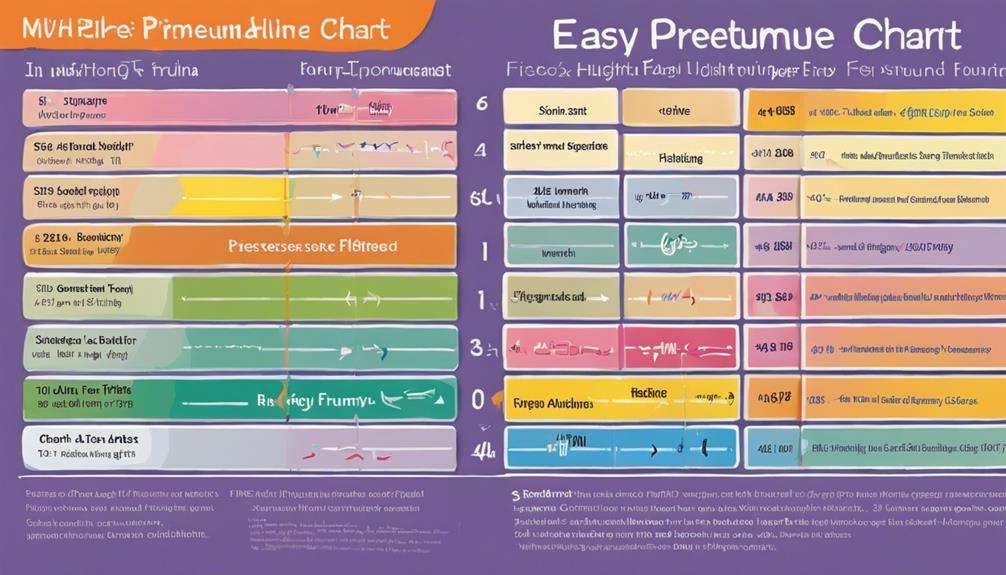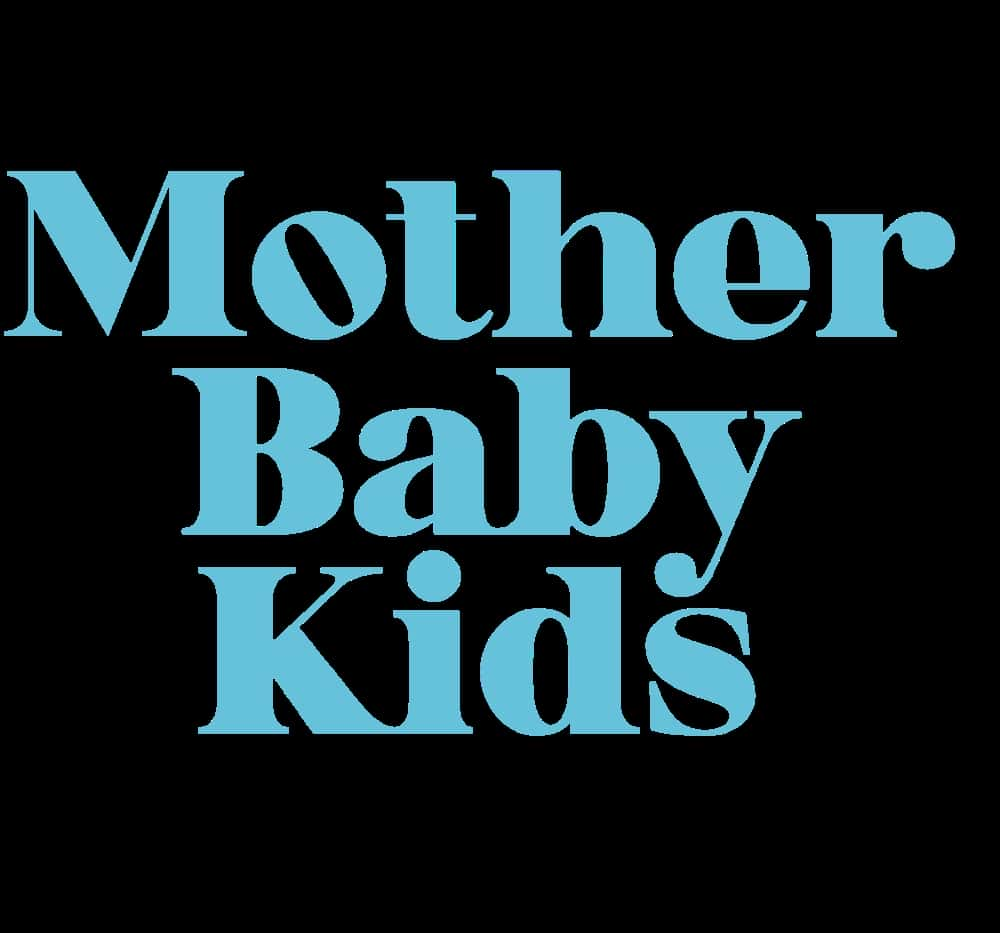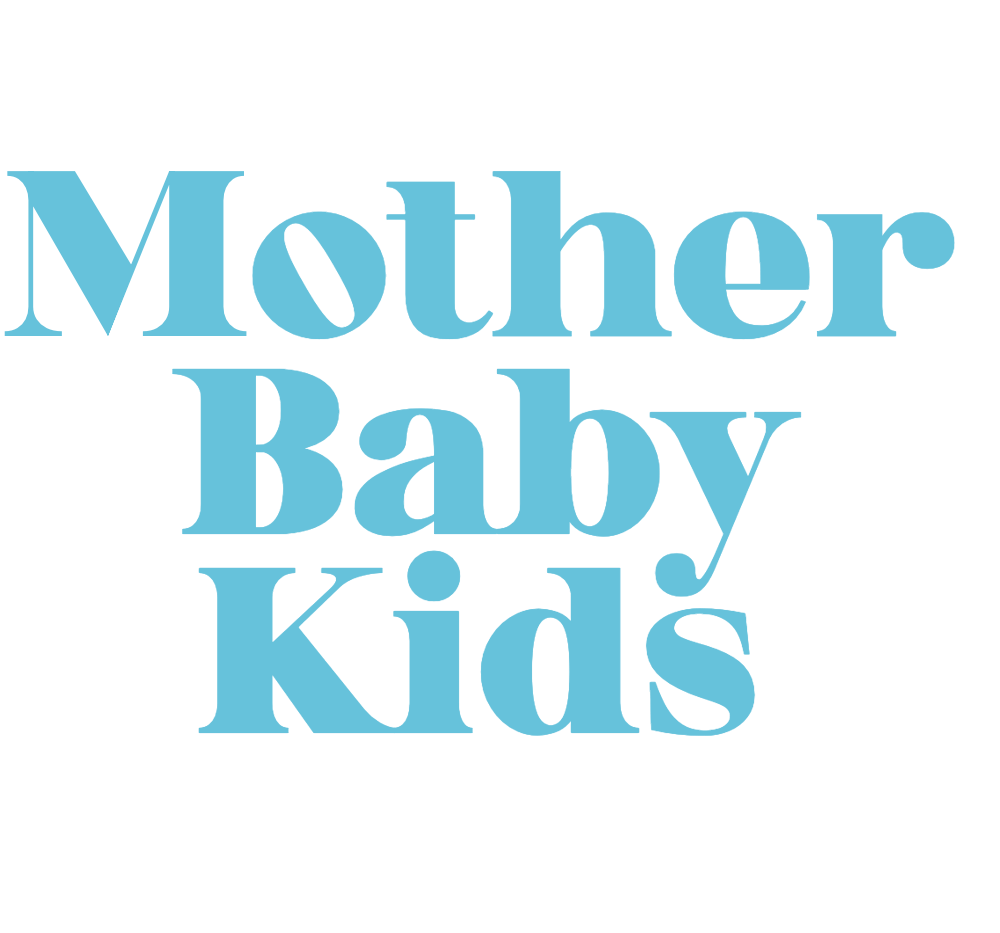Breastfeeding/Formula Feeding
Breastfeeding Vs Formula Feeding: 5 Advantages and Disadvantages
Delve into the complexities of breastfeeding and formula feeding to discover the surprising advantages and disadvantages that can shape your feeding choices for your baby's well-being.

In the longstanding discussion about whether to breastfeed or formula feed, each option brings its own set of benefits and drawbacks.
As we navigate the intricacies of nurturing our little ones, it becomes apparent that the choice of feeding can have a profound impact on their growth and development.
Let's explore the nuances of these feeding options and uncover key insights that can shape our decisions in providing the best nourishment for our babies' journey to a healthy future.
Key Takeaways
- Breastfeeding provides essential nutrients and antibodies tailored to baby's needs.
- Formula feeding offers convenience and consistent nutrition for flexible schedules.
- Breastfeeding reduces the risk of childhood ailments and diseases for babies.
- Formula feeding requires a financial commitment and lacks immune support found in breast milk.
Breastfeeding Advantages
Breastfeeding provides essential nutrients tailored to a baby's specific needs, offering numerous health benefits for both the child and the mother. Breast milk is a powerhouse of nutrients, perfectly designed to support a baby's growth and development. It contains antibodies that help strengthen the baby's immune system, reducing the risk of various childhood ailments. The advantages of breastfeeding extend into adulthood, with breastfed children showing better performance in intelligence tests.
One remarkable feature of breast milk is its ability to adjust to the baby's needs. This means that it provides additional nutrition for premature babies, aiding in their healthy development. Moreover, breastfeeding not only benefits the child but also the mother. It's associated with a decreased risk of ovarian cancer, breast cancer, and other health issues for the mother, showcasing the long-term advantages of choosing breastfeeding as the primary source of nutrition for the baby.
Breastfeeding Disadvantages
Occasionally, new mothers may experience nipple soreness and engorgement as they begin their breastfeeding journey. While breastfeeding is a natural and beneficial practice, it can come with its challenges and disadvantages. Here are some common issues that mothers may face:
- Medical Conditions: Some mothers may have medical conditions that make breastfeeding difficult or impossible.
- Medications: Certain medications can pass through breast milk and harm the baby, making breastfeeding unsafe in some cases.
- Low Milk Supply and Emotional Difficulties: Challenges such as low milk supply or emotional difficulties can arise, causing stress and frustration for the mother.
Dealing with these challenges can be tough, but with support and guidance, many mothers can overcome these obstacles and continue to provide their babies with the numerous benefits that breastfeeding offers.
Formula Feeding Advantages
Facing challenges in breastfeeding, parents may find that formula feeding offers several advantages that cater to their needs and circumstances. Formula feeding provides convenience for parents who require flexibility in feeding schedules, ensuring that the baby is fed timely. Additionally, formula offers consistent nutrition with specific nutrients tailored to meet the baby's individual requirements, which can be particularly beneficial for babies with medical conditions that necessitate specialized nutrition. Moreover, formula feeding allows partners, family members, or caregivers to actively participate in feeding and bonding with the baby, fostering a sense of closeness and involvement in the caregiving process.
| Advantages | |
|---|---|
| Convenience | Flexibility |
| Nutrition | Specific Nutrients |
| Bonding | Partners |
| Family Members | Caregivers |
Formula Feeding Disadvantages

Formula feeding poses several drawbacks that parents should consider when deciding on their infant feeding method. While formula provides nourishment for babies, there are some disadvantages associated with this approach. Here are a few key points to keep in mind:
- Financial Commitment: Formula feeding can be costly, ranging from $800 to $2,800 annually, impacting the family budget considerably.
- Antibodies and Immune Support: Unlike breast milk, formula lacks essential antibodies and immune support, potentially affecting the baby's immunity development.
- Side Effects: Formula feeding may lead to side effects like constipation, gas, and allergies, which can be distressing for babies and parents alike.
It is essential for caregivers to weigh these factors carefully and make an informed decision based on their circumstances and the well-being of their little ones.
Impact on Baby's Health
Moving from discussing the disadvantages of formula feeding, we now explore the significant impact breastfeeding has on a baby's health. Breastfeeding plays an important role in a baby's medical well-being. It not only reduces the risk of childhood ailments but also provides long-term health benefits.
Studies have shown that breastfed babies tend to perform better in intelligence tests compared to formula-fed infants. One of the remarkable aspects of breastfeeding is that breast milk adjusts to the baby's needs, offering extra nutrition for premature infants and helping to strengthen their immune systems.
Additionally, breastfeeding has been linked to decreased risks of various diseases and conditions in babies. Furthermore, breastfeeding doesn't only benefit babies; it also lowers the mother's risk of ovarian cancer, breast cancer, and other health issues.
The act of breastfeeding not only nourishes the infant but also fosters a strong bond between mothers and their babies, making it a beneficial and rewarding experience for both.
Frequently Asked Questions
What Are 5 Benefits of Breast Milk Over Formula?
We believe breast milk offers distinct advantages over formula due to its immune-boosting antibodies, tailored nutrients, and bonding benefits. Its complex composition supports a baby's health, aiding in the prevention of allergies, infections, and promoting overall well-being.
What Are the Advantages Disadvantages of Breastfeeding Versus Formula Feeding?
We've explored the benefits and challenges of breastfeeding versus formula feeding. Breastfeeding fosters immunity and bonding, while formula offers convenience at a cost. Each method has its advantages and disadvantages, and the decision ultimately depends on individual circumstances.
What Are 5 Disadvantages of Breastfeeding?
Breastfeeding, while beneficial, can present challenges like nipple soreness, coordination issues in premature babies, and medical conditions that hinder breastfeeding. Safety concerns with certain medications and emotional difficulties may also arise.
What Are 5 Advantages of Bottle Feeding?
We find bottle feeding advantageous for its flexibility, ease of sharing feeding duties, safety under certain health conditions, guarantee consistency, nutrient consistency, and dietary freedom for the mother. It fosters bonding, guarantees nutrition, and fits various lifestyles.
Conclusion
In the journey of feeding our babies, we've weighed the scales of breastfeeding and formula feeding. Like a delicate dance of pros and cons, we've navigated the path of nourishing our little ones.
Let's remember that regardless of our choice, the ultimate goal is to provide the best possible nourishment for our babies' health and well-being.
Let's embrace our feeding choices with confidence, knowing that we're doing what's best for our precious little ones.
With a rich background in writing and a keen interest in child development, she specializes in creating insightful, compassionate content that speaks directly to parents’ concerns and aspirations. Margaret believes in the power of shared experiences to bring comfort and confidence to parents everywhere.
Breastfeeding/Formula Feeding
Creating a Newborn's Formula Feeding Schedule at 1 Month Old
Get expert tips on establishing a formula feeding schedule for your 1-month-old newborn – the key to a balanced routine awaits!

After our precious baby arrived, establishing a feeding schedule with formula at one month old made a significant impact on our daily routine. Starting with frequent but small meals was the key to success in the initial weeks. However, as our little one grew, it was essential to adjust and refine that schedule.
However, understanding the intricacies of how often and how much to feed can be overwhelming. Stay tuned to discover some practical tips that can aid in creating a balanced and effective feeding plan tailored to your newborn's needs.
Key Takeaways
- Observe hunger cues and maintain a consistent feeding schedule every 2-3 hours.
- Adjust feeding amounts based on hunger and fullness signs to promote healthy growth.
- Stay flexible and monitor weight gain to tailor the feeding schedule to the baby's needs.
- Increase feeding amounts or frequency based on cues and consult healthcare providers for guidance.
Establishing a Routine for Formula Feeding
When establishing a routine for formula feeding a 1-month-old newborn, it's important to observe hunger cues and maintain a consistent feeding schedule to promote healthy growth and guarantee adequate nutrition. At this age, infants typically consume 2-4 ounces of infant formula every 2-3 hours, totaling around 8-10 feedings in a 24-hour period to fulfill their nutritional requirements. Watch for hunger cues such as rooting, sucking on fists, or increased alertness to determine when your little one needs to be fed. By establishing a consistent feeding routine, you can help your baby feel secure and support their healthy development.
It's vital to monitor weight gain and diaper output to confirm that your newborn is receiving enough formula. Adequate weight gain and regular diaper changes indicate that your baby is getting the nutrition they need. Remember, a reliable feeding schedule not only fosters healthy habits but also provides a sense of predictability and comfort for both you and your little one.
Importance of Consistency in Feeding

Establishing a consistent feeding schedule for your newborn at 1 month old is important for promoting healthy growth and ensuring adequate nutrition. Consistency in feeding provides numerous benefits for both babies and parents:
- Regulating Hunger Cues: By sticking to a regular feeding routine, babies can better predict when they'll be fed, helping regulate their hunger cues and preventing overeating or undereating.
- Promoting Healthy Growth: A consistent feeding schedule aids in the proper nourishment of newborns, supporting their physical development and growth milestones.
- Enhancing Bonding and Stability: Predictable feedings not only create a sense of stability for babies but also foster a stronger bond between parents and their little ones. This bonding time during feedings is important for nurturing emotional connections and promoting overall well-being.
Incorporating a consistent feeding schedule at 1 month old sets a positive foundation for your baby's development and ensures they receive the essential nutrients needed for healthy growth and well-being.
Factors to Consider for Feeding Schedule
To optimize your newborn's feeding routine at 1 month old, it is important to take into account various factors that can influence their feeding schedule. When establishing a feeding plan for your baby, consider factors such as their weight, growth rate, and hunger cues. Babies typically consume 2 to 4 ounces of formula every 2 to 3 hours, totaling around 8 to 10 feedings in a 24-hour period. It is vital to monitor your baby's weight gain and growth to make sure they are receiving adequate nutrition.
| Factors to Consider | Details |
|---|---|
| Baby's Weight | Monitor weight gain to determine if the feeding schedule is providing enough nutrition. |
| Growth Rate | Take into account how your baby is growing as it can impact their feeding needs. |
| Hunger Cues | Watch for signs of hunger to feed your baby when they are hungry. |
| Flexibility | Stay flexible and adjust the schedule based on your baby's individual cues. |
| Preferences | Babies may have specific preferences for feeding times. |
Sample 1-Month-Old Formula Feeding Plan

Considering a newborn's nutritional needs and development, a sample 1-month-old formula feeding plan typically involves offering 2-4 ounces of formula every 2-3 hours, totaling about 8-10 feedings in a 24-hour period. Paramount attention should be given to signs of hunger and fullness displayed by the baby to adjust the feeding amounts accordingly.
Here is a practical guide for a 1-month-old formula-fed baby:
- Feeding Amount: Offer 2-4 ounces of formula per feeding session.
- Feeding Frequency: Aim for feedings every 2-3 hours, amounting to about 8-10 feedings within a day.
- Monitoring: Keep track of wet diapers as a good indication of adequate hydration.
Adjusting Feeding Schedule as Baby Grows
As babies grow, it is essential to gradually adjust their feeding schedule and the amount of formula they consume to meet their evolving nutritional needs. As your baby grows, their feeding needs will change, and it's important to be attentive to signs that they may be ready for adjustments. One key indicator is if your baby is consistently finishing their bottles and seems hungry shortly after a feeding. This could mean they are ready for a larger amount per feeding or may need feedings closer together.
| Signs to Watch For | Adjustments Needed |
|---|---|
| Baby is consistently finishing bottles | Increase amount per feeding |
| Baby seems hungry shortly after a feeding | Consider feeding more frequently |
It's vital to track your baby's weight gain and consult with their healthcare provider regularly to make sure they are progressing well. Remember, every baby is unique, so it's important to tailor their feeding schedule to meet their individual needs as they continue to grow.
Frequently Asked Questions
What Is the Schedule for Formula Feeding for a 1 Month Old?
We aim to provide guidance on a 1-month-old's formula feeding schedule. Typically, feedings occur every 2-3 hours, with 2-4 ounces per feed. Watch for hunger cues like rooting or hand sucking. Remember to burp to ease discomfort and maintain consistency for a routine.
What Is a Good Schedule for a 1 Month Old?
Here's how we figure out a good schedule for a 1-month-old: watch for hunger cues, aim for 8-12 feedings a day every 2-3 hours, adjust as needed based on your baby's signals. Trust your instincts and baby's needs.
How Many Formula Feeds for 1 Month Old?
We usually provide a 1-month-old baby with 2-4 ounces of formula every 2-4 hours. They may need 8-10 feedings a day. Watching for hunger cues is key. Babies might cluster feed, taking smaller amounts more frequently. Consult healthcare providers for personalized advice.
What Is the Feeding Pattern for a 1 Month Old?
We feed our 1-month-old every 2-3 hours, about 8-12 times daily. Each feeding is 2-4 ounces, adjusted as needed. Look for hunger cues like rooting, and burp to prevent gas discomfort. Consistent routines provide security like a comforting hug.
Conclusion
Just like the carefully measured ingredients in a recipe, creating a formula feeding schedule for your 1-month-old baby requires attention to detail and consistency.
By following a structured plan and adjusting as needed, you can nourish your little one while fostering healthy growth and development.
Remember, your baby's feeding journey is unique, much like a perfectly crafted dish – savor each moment and enjoy the process of watching them thrive.
With a rich background in writing and a keen interest in child development, she specializes in creating insightful, compassionate content that speaks directly to parents’ concerns and aspirations. Margaret believes in the power of shared experiences to bring comfort and confidence to parents everywhere.
Breastfeeding/Formula Feeding
Top 10 Tips for Using a Premature Baby Formula Feeding Chart
Intrigued about navigating a premature baby formula feeding chart? Dive into these 10 essential tips for optimal care and growth.

When it comes to caring for premature infants, it is crucial to have a flawless strategy in place. Handling the intricacies of a premature infant’s feeding schedule requires careful attention and a thorough understanding of our baby’s unique needs.
Each tip we offer is a stepping stone towards ensuring the best possible nutrition and growth for our preemie.
Let's explore these essential strategies together to provide the best care for our tiny miracles.
Key Takeaways
- Choose formulas with higher calories and essential nutrients for optimal growth.
- Consult healthcare providers to select the right formula for your premature baby.
- Monitor weight gain closely and adjust feeding amounts accordingly.
- Keep meticulous records of feedings and communicate with professionals for effective adjustments.
Understanding the Feeding Chart
Let's explore understanding the feeding chart designed to help navigate the important feeding journey of premature babies.
The feeding chart for premature babies is a valuable tool that outlines the specific quantity and frequency of formula feeds based on the baby's weight and age. It plays a critical role in ensuring that your little one receives the necessary nutrition to support their growth and development adequately. By following the guidelines on the feeding chart diligently, you can monitor your baby's daily intake, adjust feeding amounts as they gain weight, and track their growth progress effectively.
In addition to providing general feeding recommendations, the chart may also include special instructions tailored to the needs of preemies. These instructions could involve fortifying the formula with extra nutrients or making specific adjustments to meet your baby's unique requirements. By adhering to these guidelines and seeking advice from healthcare professionals when needed, you can help promote the best health and well-being of your premature baby.
Selecting the Right Formula

Understanding the importance of selecting the right formula for your premature baby is fundamental in supporting their specific nutritional needs for optimal growth and development. When choosing a premature formula, consider formulas with higher calories and essential nutrients to aid in your preemie's development. Consult with your healthcare provider to make sure you select a formula that aligns with your baby's dietary requirements and health condition.
Look for formulas enriched with essential vitamins and minerals that are critical for preemie development. It's imperative to opt for formulas that are easily digestible to prevent any digestive issues and support your baby's overall health and growth.
- Selecting the right formula can make a significant difference in your preemie's growth journey.
- Providing higher calorie formulas can help your little one thrive and catch up on development.
- Consulting with your healthcare provider will offer personalized guidance on the most suitable formula for your baby's needs.
Calculating Feeding Amounts
When determining feeding amounts for your premature baby, it's essential to calculate based on their weight and the recommended daily intake of 150-160 milliliters per kilogram of body weight. Using a preemie baby formula feeding chart will help you determine the appropriate volume of formula needed for each feeding. It's important to adjust these feeding amounts as your baby grows and gains weight to guarantee the best nutrition and healthy growth. Consulting with healthcare providers is important to guarantee accurate calculations and address any concerns about feeding amounts that may arise.
Regularly monitoring your baby's weight and feeding patterns is key to evaluating the effectiveness of the feeding amounts determined by the chart. By staying attentive to your baby's progress and working closely with your healthcare team, you can ensure that your premature baby is receiving the right amount of nutrition for their development.
Monitoring Weight Gain
Monitoring weight gain in premature babies is essential for tracking their growth and development accurately. This important aspect can help healthcare providers assess the baby's progress and make any necessary adjustments to guarantee their well-being.
Here are some key points to take into account:
- Regular Weight Checks: Keeping track of the baby's weight through regular check-ups is essential to guarantee they're gaining weight at a healthy rate.
- Discuss Concerns: If you have any concerns about your premature baby's weight gain, don't hesitate to discuss them with your healthcare team. They can provide guidance and support to address any issues.
- Document Trends: Documenting weight gain trends on a growth chart can help identify any potential problems early on. By monitoring these trends, you can work with healthcare providers to address any issues promptly and make sure your baby reaches their developmental milestones.
Keeping Track of Feedings
To effectively track your premature baby's feedings, begin by meticulously recording the time and quantity of each feeding on the provided formula chart. It's essential to include details such as the type of formula used and any supplements added to guarantee a thorough feeding record. By noting any feeding difficulties or aversions your baby experiences, you can provide valuable information to healthcare providers and adjust feeding strategies accordingly.
Using the feeding chart allows you to monitor feeding patterns and identify trends in your baby's intake over time, aiding in the assessment of their nutritional needs. During check-ups, sharing this feeding record with healthcare professionals fosters collaboration on your baby's feeding plan, enabling necessary adjustments to be made promptly.
Keeping track of your premature baby's feedings not only helps you stay organized but also plays a critical role in ensuring your baby receives the best possible care tailored to their unique needs.
Consulting With Healthcare Providers

Seek personalized guidance from healthcare providers for best utilization of a premature baby formula feeding chart. Consulting with neonatologists or pediatricians can provide specific recommendations tailored to your baby's unique needs. These medical professionals have the expertise to interpret the chart accurately and make adjustments to feeding amounts or formulas as necessary.
Regular consultations with healthcare providers are vital to guarantee that your baby's nutritional requirements are being met effectively. By working closely with your healthcare team, you can rest assured that your premature baby is receiving the appropriate nourishment for healthy development.
- Trust the expertise of neonatologists and pediatricians for tailored feeding recommendations.
- Collaborate with healthcare providers to adjust feeding amounts and formulas as needed.
- Ensure your baby's nutritional needs are met through regular consultations with medical professionals.
Adjusting Feedings as Needed

As caregivers, we need to closely monitor our premature baby's weight gain, as it can provide valuable insights into whether adjustments to their feedings are necessary.
It's important to communicate with our healthcare provider to make sure our baby is receiving the appropriate nutrition from the formula.
Monitor Baby's Cues
By paying close attention to your premature baby's hunger cues, you can guarantee timely adjustments to their feeding schedule for best nutrition and growth. Premature babies may communicate their hunger more frequently than full-term infants, requiring more frequent feedings. It's important to observe cues like rooting, sucking on hands, or increased alertness to make sure they're adequately nourished.
Adjusting feeding amounts based on signs of satisfaction or hunger is vital for their overall development and weight gain. Remember, monitoring your baby's weight gain and development milestones can guide you in making necessary feeding adjustments. Trusting your instincts and seeking advice from healthcare providers can further support you in interpreting and responding effectively to your baby's feeding cues.
- Listen closely to your baby's cues for hunger
- Be responsive to signs of satisfaction or hunger
- Consult healthcare providers for guidance
Consult Healthcare Provider
Paying attention to your premature baby's cues for hunger is key when consulting with healthcare providers to adjust feedings as needed for their best growth and health. It's vital to consult with your healthcare provider to establish a feeding schedule that aligns with your baby's nutritional requirements, growth, and weight gain goals.
Healthcare professionals can offer tailored guidance to support your premature baby's development. Regular check-ins with your healthcare provider guarantee that any necessary adjustments to the feeding chart are made effectively.
Keep Track of Intake
Monitoring your baby's formula intake closely and adjusting feedings as needed is essential for their best growth and development. By keeping track of intake using the premature baby formula feeding chart, you can guarantee they're receiving adequate nutrition. Adjust feedings based on your baby's cues for hunger and fullness to maintain ideal feeding patterns. Remember to compare the recorded intake with recommended guidelines and consult with your healthcare provider if you notice any significant deviations.
Trusting your instincts and staying attentive to your baby's needs will help establish a healthy feeding routine. Remember, every baby is unique, and adjusting feedings as needed will support their journey to thrive.
- Trust your instincts and respond to your baby's cues.
- Maintain a balance between monitoring intake and adjusting feedings accordingly.
- Seek guidance from healthcare providers when in doubt.
Sterilizing Equipment Properly

Ensuring that your baby's feeding equipment is properly sterilized is vital for their health. By following correct sterilization techniques and maintaining a regular schedule, you can prevent harmful germs from contaminating your baby's bottles and nipples.
Equipment Sterilization Importance
Properly sterilizing feeding equipment is essential to safeguarding the health of premature babies by preventing harmful bacteria growth and reducing the risk of infections. When it comes to equipment sterilization, we acknowledge the importance of maintaining a safe feeding environment for our little ones. Here are a few things to keep in mind:
- Sterilization of bottles, nipples, and caps is vital for preemies with delicate immune systems.
- Effective sterilization eliminates germs, viruses, and parasites that can compromise premature infants' health.
- Consistent use of recommended sterilization methods guarantees the cleanliness of feeding tools for safe preemie formula feeding routines.
Taking these steps can help promote a healthy and secure feeding routine for our precious premature babies.
Correct Sterilization Techniques
To maintain a safe feeding environment for your premature baby, it's important to implement correct sterilization techniques for equipment.
Sterilize bottles and nipples by boiling them in water for 5 minutes to prevent bacterial contamination effectively. Make sure all parts are fully submerged in boiling water or steam for thorough disinfection.
Using a bottle sterilizer or microwave steam bags can provide important and efficient sterilization methods.
It's vital to sterilize equipment before every use, especially during the early months when your baby's immune system is still developing.
Following manufacturer guidelines for proper sterilization techniques is essential to uphold a safe feeding environment for your precious premature baby.
Frequency of Sterilizing
As we prioritize the health and safety of our premature babies, it's important to establish a consistent routine for sterilizing feeding equipment like bottles, nipples, and pump parts.
Daily sterilization is vital to prevent bacterial contamination and protect our little ones with weaker immune systems. To guarantee proper sanitation, boil the items in water for 5 minutes or use a steam sterilizer.
Following manufacturer guidelines is essential for maintaining the effectiveness of the sterilization process. Remember to regularly inspect the equipment for any signs of wear and tear that could impact its sterilization quality.
Our babies' well-being relies on the meticulous care we provide, so let's stay vigilant in keeping their feeding equipment sterile.
Storing Formula Safely

When storing formula, it's important to make sure that it's kept in a cool, dry place away from moisture and direct sunlight to maintain its quality. Powdered premature baby formula should be stored in an airtight container once opened to prevent moisture absorption and clumping.
For ready-to-use formula, refrigeration after opening is key, and it should be consumed within 48 hours for the best freshness. Always check the expiration date on the formula packaging and discard any expired or spoiled formula to guarantee your baby's safety.
Proper formula storage is vital for maintaining its nutritional value and safety for your little one. By following these guidelines, you can make certain that your premature baby receives the best possible nourishment.
Remember not to freeze formula, as this can alter its consistency and nutrient content, potentially causing feeding issues. Prioritize safe and effective formula storage to support your baby's healthy development.
Establishing a Feeding Routine

Let's establish a consistent feeding routine for your premature baby based on their weight, age, and nutritional requirements. When creating a feeding schedule, it's crucial to take into account the specific needs of your little one.
Here are some tips to guide you along the way:
- Observe Hunger Cues: Pay close attention to your baby's hunger cues to make sure they're fed promptly and adequately.
- Consult Healthcare Providers: Seek guidance from healthcare providers on how to interpret and utilize the premature baby formula feeding chart effectively.
- Adjust Feeding Frequency: Be prepared to adjust the feeding frequency as your baby grows and their nutritional needs change.
Frequently Asked Questions
How Do You Feed a Premature Baby Formula?
When feeding a premature baby formula, it's crucial to follow your doctor's guidance on the proper amount based on their weight and nutritional needs.
Specialized preemie formulas like Similac Special Care or Enfamil Premature are excellent choices as they provide essential calories and nutrients for growth.
Track their intake by noting the ounces consumed per feeding and adjust as necessary for the best nutrition.
Always consult your healthcare team if you have any concerns or notice changes in your baby's behavior.
What Is the Best Feeding Method for a Premature Baby?
When it comes to feeding premature babies, the best method is often breastfeeding, as it provides essential nutrients and antibodies important for their growth.
Human milk fortifiers can further enhance breast milk's nutritional value.
Specialized preemie formulas like Similac Special Care and Enfamil Premature are also tailored to meet the unique needs of premature infants.
Healthcare providers play a key role in guiding the choice of feeding method to guarantee ideal nutrition and growth for these delicate babies.
What Are the Guidelines for Premature Feeding?
Feeding premature babies requires careful attention to their needs. We follow guidelines recommending feeding every 3-4 hours, adjusting amounts based on weight and growth. Monitoring wet diapers and weight gain is crucial for their development.
We use feeding charts to track progress and consult healthcare providers for personalized plans. It's a delicate balance, but with diligence and support, we can nourish these little fighters effectively.
What Formula Is Best for Premature Babies?
When it comes to choosing the best formula for premature babies, it's important to take into account their unique needs. Formulas like Similac Special Care and Enfamil Premature are tailored to meet their higher calorie and nutrient requirements.
Human milk fortifiers are often preferred over cow's milk ones for added growth support. Specialized options like EleCare or Neocate may be recommended for infants with digestive issues or allergies.
It's vital to consult with healthcare providers for personalized recommendations.
Conclusion
To sum up, following a premature baby formula feeding chart is vital for ensuring your little one receives the necessary nutrition for healthy growth and development. By monitoring weight gain, adjusting feedings as needed, and establishing a feeding routine, you can support your preemie's unique needs.
For example, Sarah's premature baby, born at 32 weeks, thrived on a specialized preemie formula, hitting all growth milestones with the help of a well-managed feeding plan.
Remember, every baby is different, so consult with your healthcare provider for personalized guidance.
With over a decade of experience in editorial leadership, Esther has been at the helm of Mother Baby Kids since its inception. Her journey into parenting content was inspired by her own experiences as a mother, navigating the joys and challenges with a desire to support other parents. Esther is passionate about storytelling that connects, educates, and empowers families from all walks of life.
Breastfeeding/Formula Feeding
Baby Poops After Every Formula Feeding: A Parent's Guide
Intrigued by why your baby poops after every formula feeding? Unlock the reasons and solutions in this insightful guide for parents.

As parents, we have all experienced those moments when our child suddenly needs a diaper change right after being fed formula. It can result in quite a messy situation. But what if this becomes a frequent occurrence, causing you to wonder if it’s normal or if there may be an underlying problem at play?
Understanding why your baby poops after every formula feeding can provide valuable insights into their digestive health and overall well-being. Let's explore some possible causes and practical tips for managing this situation effectively.
Key Takeaways
- Regular pooping after formula feeding is normal for healthy babies.
- Monitor bowel movement frequency and consistency for digestive health.
- Adjust feeding practices to optimize digestion and prevent overloading.
- Consider the type of formula used and seek pediatrician advice if needed.
Possible Causes of Frequent Pooping
Frequent pooping after every formula feeding can be attributed to various factors that influence a baby's digestive system. For a baby being formula-fed, it's not uncommon to experience more regular bowel movements compared to breastfed babies. The type of formula being used can also play a role in the frequency of stools. Formula-fed infants may have a faster digestive response to the formula, leading to more frequent pooping episodes. It's important for parents to remember that if their baby appears healthy and isn't displaying signs of discomfort, frequent pooping after formula feeding is generally considered normal and not a cause for concern.
Understanding the reasons behind your baby's bowel movements can provide reassurance and help alleviate any worries you may have. While changes in stool frequency can be noticeable, especially after formula feeding, keeping an eye on your baby's overall well-being is key. Remember, every baby is unique, and their digestive patterns can vary. If you ever feel concerned about your baby's pooping habits, don't hesitate to reach out to your healthcare provider for guidance and support.
Tips for Managing Pooping Frequency
When managing your baby's pooping frequency after formula feedings, it's important to maintain a balanced approach that considers both their digestive needs and overall well-being. Babies who poop after each formula feeding are often just exhibiting a normal response to the composition of formula milk. This regularity can actually indicate good digestion and absorption of essential nutrients. Monitoring your baby's bowel movements is key to tracking their digestive health. Keep an eye on the frequency and consistency of their poops to make sure everything is on track.
However, sudden changes in pooping frequency or the presence of other concerning symptoms shouldn't be ignored. If you notice anything unusual or have any worries, it's best to consult a pediatrician for guidance. They can provide tailored advice and address any underlying issues that may be affecting your baby's digestion. Remember, your pediatrician is there to support you and your baby's well-being every step of the way.
Adjusting Feeding Schedules
To address the frequent pooping issue after formula feedings, adjusting the feeding schedules can play an important role in managing your baby's digestive process more effectively. It's crucial to space out formula feedings to give your baby's digestive system ample time to process each feeding properly. Consider offering smaller, more frequent feedings to prevent overloading their system, which could lead to immediate bowel movements after each feeding.
Watch out for gulping formula too quickly, as this rapid intake of food can trigger instant bowel movements. Experiment with different feeding positions and bottle nipples to optimize your baby's feeding technique and potentially reduce the frequency of post-feeding bowel movements.
If adjusting feeding schedules and techniques doesn't alleviate the issue, it's advisable to consult with a pediatrician. They can help rule out any underlying digestive issues or intolerances that may be causing your baby to poop after every formula feeding. Your pediatrician can provide personalized guidance and support to make sure your baby's digestive health is properly addressed.
Choosing the Right Formula

When selecting the appropriate formula for your baby, it's essential to take into account factors such as potential allergies and the gentle ingredients present in the formula. Here are some tips to guide you in choosing the right formula for your little one:
- Consider opting for a hypoallergenic formula: If your baby is experiencing frequent bowel movements after feedings, it could be a sign of allergies. Choosing a hypoallergenic formula can help rule out potential allergens and provide relief for your baby's digestive system.
- Look for gentle ingredients: Opt for formulas with gentle ingredients to reduce the likelihood of digestive issues and regulate your baby's bowel movements. Ingredients labeled as 'easy to digest' or 'gentle on the stomach' can be beneficial for babies with sensitive stomachs.
- Consult with your pediatrician: Discuss the possibility of trying a different formula with your pediatrician to see if it helps alleviate the frequent pooping pattern. Your pediatrician can provide valuable insights and recommendations based on your baby's specific needs.
Addressing Pooping Concerns
Addressing pooping concerns in formula-fed babies is an important aspect of monitoring their digestive health and overall well-being. It's typical for a formula-fed baby to poop after each feeding, reflecting the composition of formula that aids in digestion. Unlike breastfed babies, formula-fed infants usually have firmer and less frequent bowel movements. The consistency, color, and frequency of your baby's poop can offer valuable insights into their digestion and absorption of nutrients.
Monitoring your baby's poop is a proactive way to make certain their digestive health stays on track. If you notice excessive pooping or significant changes in your baby's bowel movements, reaching out to a healthcare provider is advisable. They can provide guidance tailored to your baby's specific needs and address any concerns you may have about their poop frequency or digestion. Remember, each baby is unique, and what's typical for one may differ for another. Trust your instincts and seek support when needed to promote your baby's well-being.
Frequently Asked Questions
Is It Normal for My Baby to Poop After Every Formula Feeding?
Yes, it's normal for some babies to poop after every formula feeding. This can indicate efficient digestion and nutrient absorption. If your baby is content and gaining weight, frequent pooping is likely not concerning.
Is It Normal for Baby to Poop After Drinking Formula Milk?
It's normal for babies to poop after each formula feeding. Formula milk is easier to digest, often leading to frequent bowel movements. As long as the poop is soft, regular, and yellow, there's usually no need to worry.
Why Has My Baby Started Pooping After Every Feed?
We noticed our baby started pooping after every feed. It's common with formula-fed babies due to its impact on bowel stimulation. Every baby's digestion is unique, but if concerned, consult a healthcare provider. Tracking patterns can provide valuable insights.
How Many Times Should a Formula Fed Baby Poop?
As formula-fed babies, we typically poop 1-4 times daily. Factors like age, diet, and health influence this. Pooping after each feeding can be normal. Observe baby's behavior, growth, and comfort. If thriving, frequent pooping might not be concerning.
Conclusion
In the journey of parenthood, maneuvering a baby's digestive patterns can be a messy yet rewarding experience.
As we witness our little ones pooping after every formula feeding, it's a reminder of their growth and development.
Like colorful brushstrokes on a canvas, each diaper change paints a picture of health and essentiality.
Let's cherish these moments, seek support when needed, and continue to nurture our precious babies with love and care.
With a rich background in writing and a keen interest in child development, she specializes in creating insightful, compassionate content that speaks directly to parents’ concerns and aspirations. Margaret believes in the power of shared experiences to bring comfort and confidence to parents everywhere.
-

 Third Trimester2 weeks ago
Third Trimester2 weeks agoManaging Nausea in the Third Trimester: A How-To Guide
-

 Third Trimester1 week ago
Third Trimester1 week agoManaging Nausea During the Third Trimester: A How-To Guide
-

 Third Trimester2 weeks ago
Third Trimester2 weeks agoSafe Third Trimester Exercise Guide for Moms-to-Be
-

 First Trimester3 months ago
First Trimester3 months agoDramamine Use in Pregnancy: First Trimester Guide
-

 Newborn Care6 hours ago
Newborn Care6 hours agoNewborn Care Basics: A Step-by-Step Guide
-

 Second Trimester3 months ago
Second Trimester3 months ago10 Common Causes of Dizziness in the Second Trimester
-

 Finding Time for Self2 months ago
Finding Time for Self2 months agoSelf-Care Tips for Single Parents | Make Time for You
-

 Finding Time for Self2 months ago
Finding Time for Self2 months agoSelf-Care for Stay-at-Home Moms: Making Time














